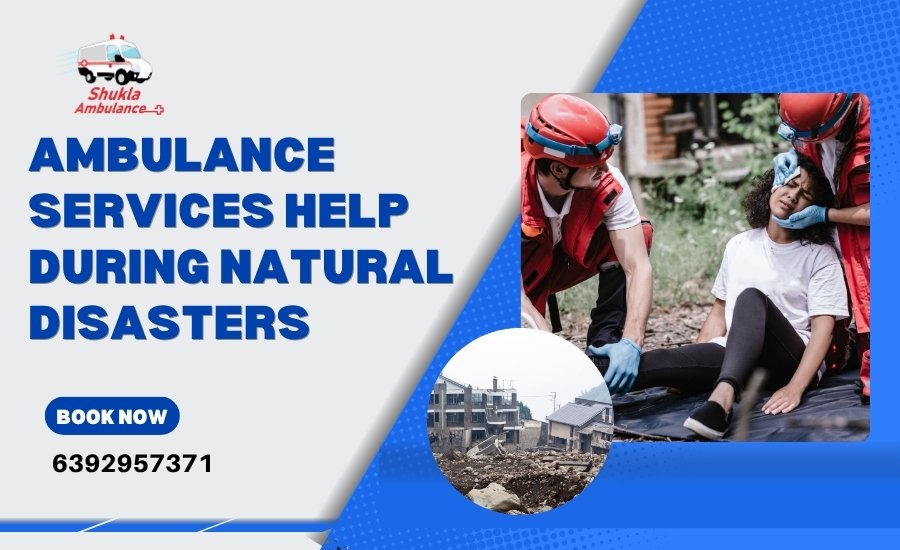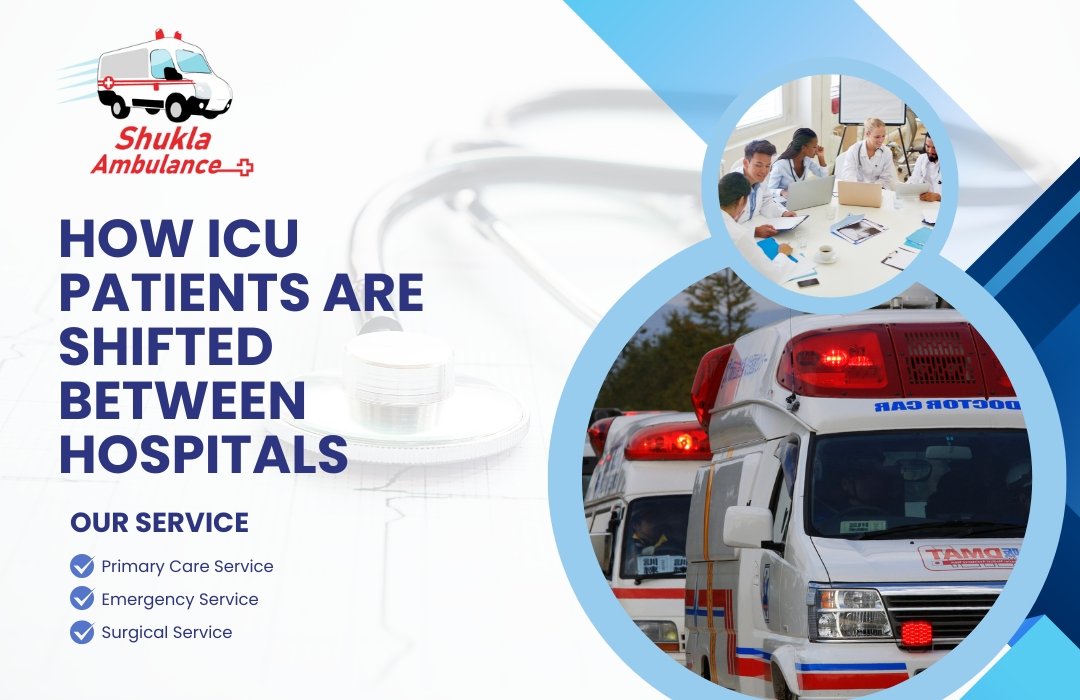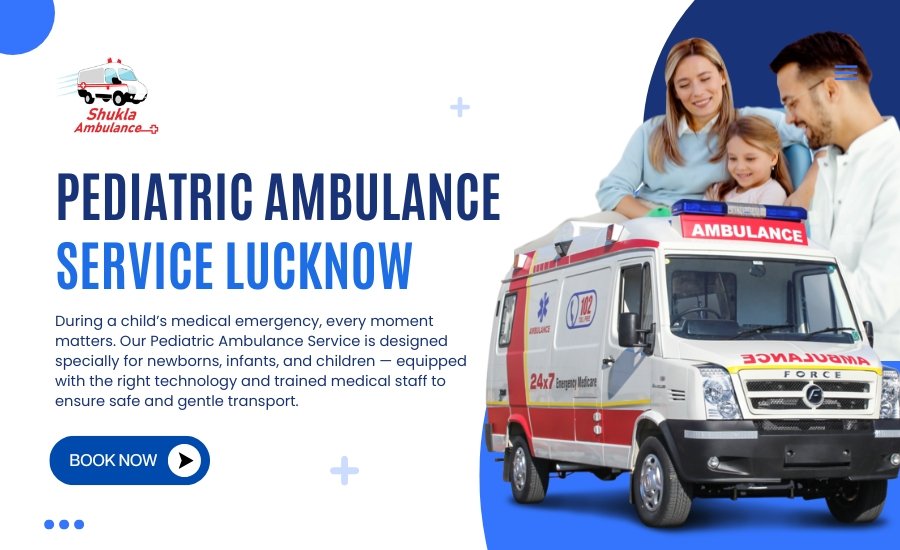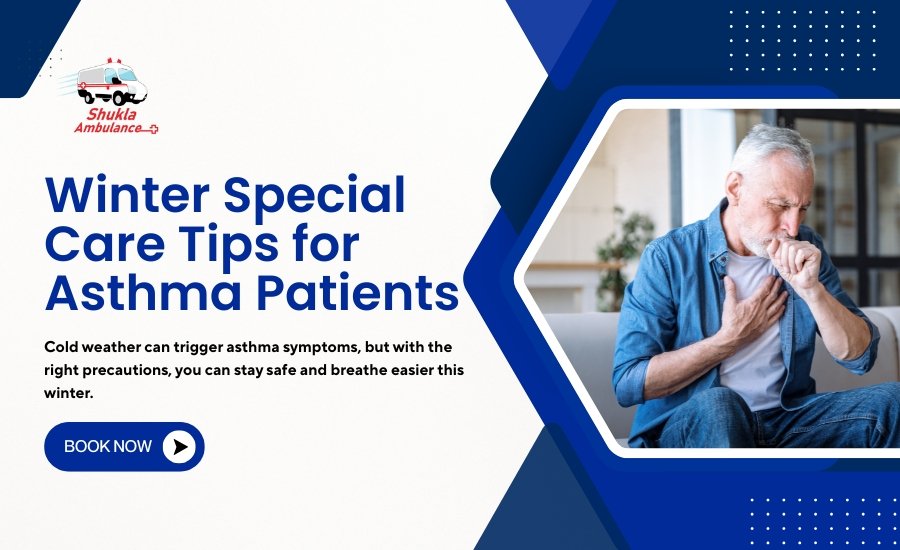


Natural disasters — such as floods, earthquakes, cyclones, or landslides — strike without warning and can cause massive destruction within minutes.
In these moments, every second counts for those injured or trapped. One of the most crucial lifelines during such emergencies is a well-equipped and responsive ambulance service.
In cities like Lucknow, where the population is dense and weather patterns can be unpredictable, Shukla Ambulance plays a vital role in saving lives during and after natural disasters.
Natural disasters can overwhelm local healthcare systems and make access to hospitals extremely difficult.
Roads may be blocked, communication networks can fail, and hospitals may run out of emergency resources.
The major challenges during disasters include:
• Rapid rise in injuries and trauma cases
• Limited access to emergency hospitals
• Delay in rescue operations
• Shortage of medical supplies
• Need for immediate first aid and evacuation
This is where ambulance services like Shukla Ambulance Lucknow become a frontline response force.
Ambulance services do much more than transport patients — they become mobile emergency rooms, providing medical attention even in the most difficult conditions.
Here’s how they make a difference ?
During floods, earthquakes, or building collapses, ambulances are the first medical responders to reach the affected area.
They safely evacuate the injured from disaster zones and provide on-spot first aid or critical care while transporting them to the nearest hospital.
For instance, Shukla Ambulance Lucknow operates GPS-enabled ambulances that can navigate blocked or alternate routes, ensuring faster rescue and patient transfer.
• Modern ambulances are equipped with:
• Stretchers and oxygen cylinders
• Defibrillators and first-aid kits
• Ventilators (in ICU ambulances)
• Advanced trauma management tools
Trained paramedics provide immediate life support to patients suffering from bleeding, fractures, cardiac arrest, or unconsciousness.
This quick intervention can prevent further complications before the patient reaches the hospital.
Ambulance control rooms work closely with:
• Local hospitals and trauma centers
• Police and disaster response teams (NDRF/SDRF)
• Fire and rescue departments
This coordination ensures that patients are routed to hospitals where medical teams are ready to receive them — saving valuable time.
Shukla Ambulance’s 24/7 control room in Lucknow uses real-time GPS monitoring to track all active ambulances, ensuring smooth communication between ground staff and hospitals.
Sometimes, disaster victims need to be transferred to hospitals in nearby cities for advanced treatment.
In such cases, long-distance ambulances equipped with oxygen support and medical attendants are deployed.
Shukla Ambulance offers intercity ambulance transfers from Lucknow to Kanpur, Varanasi, or Delhi for critical patients — ensuring safe and continuous medical supervision.
Ambulances are not just for patients.
During large-scale disasters, they are used to deliver emergency medical supplies, oxygen cylinders, and even doctors or paramedics to the disaster site.
When roads are damaged or blocked, GPS tracking and route planning help identify the fastest safe path for emergency delivery.
Beyond physical injuries, disasters cause emotional trauma.
Trained ambulance staff not only treat patients medically but also offer emotional reassurance, especially to the elderly, children, and families in distress.
This compassionate response is what makes services like Shukla Ambulance stand out as a symbol of trust and humanity in crisis.
Modern ambulance fleets rely heavily on technology for efficiency.
Key innovations that help during natural disasters include:
• GPS Tracking: Helps locate patients quickly and avoid blocked roads.
• Real-Time Communication: Continuous updates between drivers, hospitals, and control centers.
• Digital Mapping: Identifies safe routes for rescue and evacuation.
• Emergency Alert Systems: Allow quick dispatch of the nearest available ambulance.
Shukla Ambulance Lucknow integrates these technologies to ensure swift and coordinated disaster response.
To respond effectively, ambulance teams undergo regular disaster management drills.
These include:
• First-aid and trauma training
• Evacuation techniques in flood or fire
• CPR and life support skills
• Patient handling during mass casualty events
The aim is simple — to be ready before disaster strikes.
Shukla Ambulance also organizes first-aid and CPR awareness programs in schools, offices, and housing societies across Lucknow.
By educating citizens about basic emergency care, they build a more resilient community that can act confidently in disaster situations.
In natural disasters, ambulances are not just vehicles — they are lifelines that bring hope and survival.
With advanced equipment, trained staff, and real-time coordination, Shukla Ambulance Lucknow ensures that emergency medical care reaches victims when it’s needed most.
? Stay safe. Stay prepared.
For emergency ambulance service in Lucknow, call Shukla Ambulance – Your trusted emergency partner.




